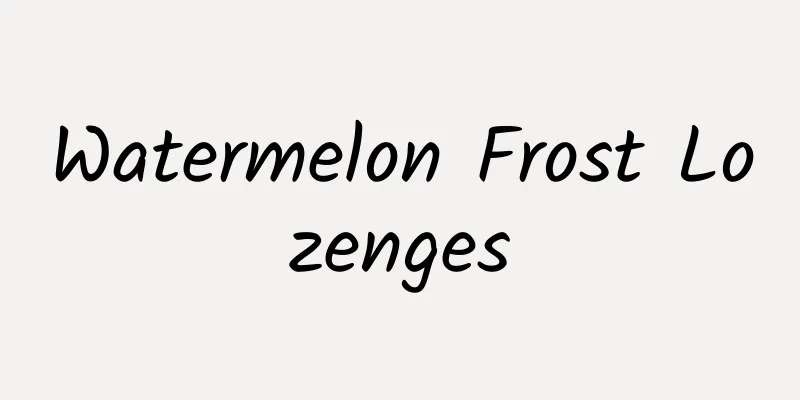The efficacy and function of gourd seven

|
As people's living standards continue to improve, health and longevity are gradually valued by us, so nowadays health-preserving diet therapy methods are very popular, the trend of traditional Chinese medicine is becoming more and more popular, and Chinese medicine has once again occupied people's vision. Today we will talk about the Chinese medicine Huluqi. [Alias] Dajiujia, Heyeqi (Shaanxi Chinese Herbal Medicine), Shanshiwan (Shanxi Chinese Herbal Medicine). [Source] It is the root and rhizome of the Asteraceae plant Ligularia renifolia . Dig up in summer and autumn and sun-dried. [Original form] Perennial herb, about 1 meter high. The rhizome is short and thick, with many slender fibrous roots. The stem is erect with longitudinal stripes. The basal leaves are kidney-shaped, 10 to 20 cm long and 11 to 25 cm wide, with fine serrations on the edges, deeply cordate at the base, and long petiolate; the stem leaves are small, with swollen petioles that embrace the stem. The inflorescence head is about 2 cm long, arranged in a racemose shape, with an ovate, toothed bract under the peduncle; the ligulate flowers are yellow. Achenes slender, with long pappus. Flowering period is summer. [Habitat distribution] Grown in slightly moist places on hillside grasslands. Distributed in Northeast China, Inner Mongolia, Shanxi, Shaanxi, Gansu, Sichuan and other places. [Properties] The dried roots are mostly twisted into a ball, the rhizome is tuberous, there are fiber remnants of leaf bases at the top, and many fine roots grow at the bottom. The root is 10 to 15 cm long, about 2 mm in diameter, and grayish yellow-brown in appearance. It is brittle and has a yellowish-white cross section. It has a special aroma and spicy taste. [Chemical composition] The root of Ligularia nephrifera contains isopentenylic acid furanodruvone. The above-ground parts contain ligustrine ketone, ligustrine epoxygenin, ligustrine epoxy alcohol, and ligustrine epoxy alcohol acetate. Ligularia dentata contains fumaric acid, ligusticum montana, ligusticum alkaloids, and ligusticum dentata. 【Nature and flavor】 Sweet and spicy, warm. 【Functions and indications】Regulating qi and promoting blood circulation, relieving pain, relieving cough and removing phlegm. Treat injuries from falls, strain, pain in the waist and legs, cough and asthma, whooping cough, and lung abscess with hemoptysis. [Usage and Dosage] For oral use: decoct in water, 1 to 3 qian; or grind into powder and drink with water. 【Note】 Avoid drinking water; use with caution in patients with yin deficiency or dry cough due to lung heat. [Additional prescription] ① Treating waist and leg pain: 72 liang of bottle gourd, grind into powder, take 2 qian each time, twice a day, drink with cold boiled water. [Note] The roots of the same genus Ligularia japonica can also be used as medicine. 【Excerpt】 《*Dictionary》 Above we introduced what Huluqi is. We know that Huluqi can not only be used to treat diseases but also has good health care effects, so we must be good at using Huluqi to protect our health. |
<<: The effects and functions of carrots
>>: The efficacy and function of sand pine fruit
Recommend
Effects and functions of southern jujube
Traditional Chinese medicine is very effective in...
The efficacy and function of rock pepper grass
I wonder if you have ever heard of rock peperomia...
Complete list of Chinese medicine effects
There are many diseases in life that require the ...
The role and efficacy of Ophiopogon japonicus
We cannot be completely ignorant of the functions...
There are 5 super carcinogens hidden around us. Check if you eat them often!
Have you ever paid attention to the carcinogens a...
Why can I still eat dessert when I am already full? Do I really have another stomach?
Image source: Unsplash When you have just finishe...
The efficacy and function of Xinjiang Polygala
As the pressure of modern life increases, more an...
The fierce competition between the two brightest minds made the chemical bond theory compatible [Part 1]
How atoms connect to form molecules is the primar...
Will sitting for a long time make you ugly? Uncover the health truth of long-term sitting posture
In today's modern life, many people are troub...
Is it not a dream to lose weight by lying down? What other information is worth paying attention to behind the "switch" for burning fat?
Everyone knows the simple principle of weight los...
What is the effect of Luobu Ma tea?
Many of our friends have drunk Lop Neck Tea in li...
The efficacy and function of corn grass
As a traditional Chinese medicine, do you know th...
The efficacy and function of fox liver
For Chinese medicinal materials such as fox liver...
The efficacy and function of Xiaoshan grass root
When it comes to the root of ophiopogon, we are a...









